I posted the following after a number of complaints were registered about my original content:
Okay, stop!
Obviously I’ve written more than one controversial statement in this blog post and it’s causing more trouble than it’s worth. So hopefully WordPress will let me “comment out” the HTML of the content so I won’t actually have to erase it. I could have reverted this blog post to “draft” status or simply deleted it, but then I’d have to explain via email to each person who asked what happened to it.
It seems clear that in my exploration to clarify things for myself relative to the “bilateral ekklesia” and its relationship to the Kingdom of Heaven, that I’ve stepped on more than a few toes, which was not my intention. I sometimes complain of the contentiousness of religious blogging, and I’ve been doing more than my fair share to contribute to it lately.
I have to fix this. This has to end. I have to find a different way to take the next step in my spiritual evolution, whatever that may be, without dragging everyone down into the mud and making a mess of things.
I feel like I’m on the cusp of taking a major step forward, but I guess that’s not obvious from what I’ve been doing lately.
I have an idea. Wait for it.
NOTE: No, WordPress won’t let the HTML comment out tags work, so the content is now deleted.
After much deliberation, I decided to restore the original content with the understanding that it is simply to provide context for those who happen upon this blog post and can’t make heads or tails of it. Again, I never meant for what I wrote to cause offense.
The original blog post content follows:
The kingdom of heaven prior to the final redemption can be likened to a partisan movement, such as Robin Hood and his men or the European freedom fighters that fought in Nazi occupied territory. The Partisans is a teaching on Hebrews 2 in light of Psalm 8 and the parable of Luke 19:12ff concerning all things in subjection to the Son and the revelation of the kingdom.
-D. Thomas Lancaster
Sermon Eight: The Partisans
Originally presented on February 16, 2013
from the Holy Epistle to the Hebrews sermon series
This was the opening quote of my original review of Lancaster’s sermon I published in March of 2014.
Much more recently, about a week ago, I published my previous blog post The Hope of Healing in the Bilateral Ekklesia chronicling the recognition, both among the Jews in Messianic Judaism, and those non-Jews who are involved, that there is a rift between Jews and Gentiles in the ekklesia, and that, as disciples of Yeshua, we desire to be (somehow) reconciled with one another.
I’m about to say (write) something you may not expect out of me. I’m going to say that the major barrier in that healing is the emphasis on Judaism vs. the emphasis on the Kingdom.
I quoted Lancaster above because in that sermon and a number of others, he emphasized that the Kingdom of Heaven, that is, the Messianic Kingdom, was already emerging into our world, probably within Yeshua’s earthly lifetime we see recorded in the Gospels, and certainly after his ascension when myriads of Gentiles were being drawn to Hashem through the teachings of the Master.
But as I’ve said many times before, even in those days, the problem of what to do with the Gentiles was a major headache among the Jewish Messianic disciples and apostles, including the emissary to the Gentiles, sent to us by the Master himself, Paul.
I don’t believe Paul ever “solved” the “Gentile problem,” but as I’ve also surmised, maybe he didn’t think he had to. If he really believed Messiah’s return was imminent, then he probably figured our King would order our ways in the ekklesia and in the Kingdom.
But Messiah didn’t return within the last decades of the First Century CE, nor in the subsequent centuries between then and now. What resulted, as you well know, was a terrific rift between the devout Jews and the Gentile believers, until Jewish faith in Yeshua was finally extinguished and only the Gentiles, however imperfectly, kept faith in Messiah…in Christ.
But that’s not to say, as the modern Church believes, that the Jews went down a dead end path of religion by works which took them away from God as it took them away from Yeshua (and I have to thank Rabbi Stuart Dauermann for writing about this on his Facebook page last Friday).
Each body, Rabbinic Judaism and the Christian Church, has preserved something of the lessons of God down through the long years and to this very day. Each has a certain number of pieces in the jigsaw puzzle of redemption, but it seems whenever the two groups get together and attempt to assemble that puzzle, none of the Jewish pieces match up with the Christian pieces. Apples and oranges. Square pegs and round holes.
But wait a minute.
From a present-day perspective, looking back at the late 19th century, we find a small body of Jews who lived as Jews (rather than converting to Christianity) who accepted the revelation that Yeshua as depicted in the Apostolic Scriptures, is indeed the Holy Moshiach of Hashem, sent with the good news of redemption for all Israel and even for the Goyishe nations.
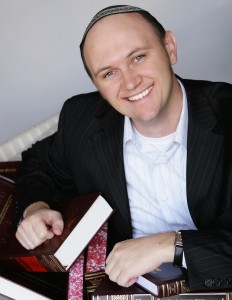
Nearly four years ago, Rabbi Joshua Brumbach published a couple of blog posts: Rabbis Who Thought for Themselves and Rabbis Who Thought for Themselves – Part II presenting the lives of a number of late 19th and early 20th century Rabbis who indeed, “thought for themselves,” certainly thought outside the box, and came to the realization that Jesus of Nazareth, when you wipe the Gentile “make up” off his face that the Church painted there, is indeed Moshiach and Son of the Most High.
Much later, in the 1960s, the “Jesus Freak” movement spawned something that would eventually become the Messianic Judaism and Hebrew Roots groups we have today. For the past several decades, a small but growing body of Jews have accepted this revelation and have put Yeshua, Paul, and the other apostles and disciples we find in the Apostolic Scriptures, back into their ancient Jewish context.
It then became possible to study their teachings and written works the way any modern Jew would study Torah, Tanakh, and Talmud.
This is terrific news for Jews in Messiah who cannot and should not attempt to fit into modern Christianity, it’s the way to take what Rabbinic Judaism has preserved for the past twenty centuries and “marry” it to the good news of Messiah the Church has preserved, keeping in mind that what the Church believes about Christ has to be radically refactored in order to become (re)integrated with both ancient and modern Judaism, forming or at least crystalizing, some of what is called Messianic Judaism today (I word it that way because often many Gentile-driven Hebrew Roots groups and communities will call themselves “Messianic Judaism” or “Messianic” something).
But while this is good news for the Jews, what about the Gentiles? It seemed like good news at first, but as the blog series I’ve been writing lately has shown, there’s an uncomfortable flip side to all of this. If we support Messianic communities as being by and for Jews, where do the Gentiles go, the Church?
My personal experience has shown me that this isn’t always a sustainable alternative. Many of us don’t fit in at Church, much as we’ve tried.
But if Messianic synagogues are havens and sanctuaries for Jews in Messiah to live and worship in Jewish community, then by definition, we don’t fit in there as well.
Or do we?
There is a high degree of variability as to just how accepted non-Jews are in Messianic Jewish groups, at least in the U.S. For instance, Beth Immanuel in Hudson, WI touts itself as “Messianic Judaism for all Nations,” and while some Jews do worship there, its leadership is non-Jewish.
If you knew nothing about Beth Immanuel and you happened, as a non-Jewish disciple, that is, a Christian, to wander in for Shabbat services one Saturday morning, you might not realize it wasn’t a completely Jewish establishment. I’ve only been there for a couple of Shavuot conferences, so I don’t know what happens on a typical Shabbat, but I’d guess that there would be a traditional Jewish prayer service and a Torah service.
If an Oneg meal is shared, our hypothetical Christian would learn that the kitchen is kosher and no actual cooking is done on Shabbos. For those who choose, before a meal, they may practice netilat yadayim or ritual hand washing. And of course, being this is a kosher kitchen in what seems like a Jewish synagogue, any of the food served would also be kosher. No ham sandwiches or shrimp scampi on the menu.
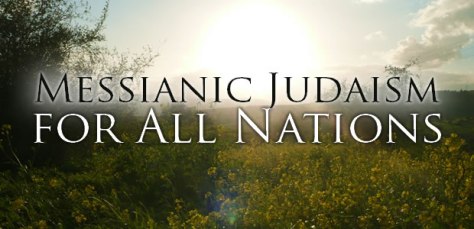 And yet, most of the people I’ve met at Beth Immanuel are non-Jews like me. That being the case, most of the men wear a kippah, don a tallit gadol for services, and I suspect many of them wear a tallit katan under their shirt on a daily basis, with the tzitzit tucked into their trousers.
And yet, most of the people I’ve met at Beth Immanuel are non-Jews like me. That being the case, most of the men wear a kippah, don a tallit gadol for services, and I suspect many of them wear a tallit katan under their shirt on a daily basis, with the tzitzit tucked into their trousers.
You can see why it can be confusing to have that experience and at the same time hear messages about a strict segregation between Gentiles and Jews in Messiah in order to preserve the Judaism and Jewish life in Messianic Jewish community.
Of course there are many other Messianic Jewish congregations that have a Jewish leadership, such as Tikvat Israel in Richmond, VA, and yet there are numerous non-Jews in regular attendance in those shuls.
I’ve never visited Tikvat Israel, so I can’t comment about it in any detail, except to say that Rabbi David Rudolph, who is the head Rabbi, is Jewish, and that, at least in our email communications, he has treated me courteously and with compassion.
I know there are some notable Messianic Jews who believe the Messianic Judaism we have today is a fully realized microcosm of what the Messianic Kingdom will be when Messiah returns.
I’m sorry, but I can’t agree with that assessment (and I imagine I’ll hear about it, both in the comments section of this blog post and via email).
D. Thomas Lancaster believes that, using the “partisan” model, the Messianic Kingdom is slowly emerging, but the King is still absent, like an ancient King in exile, but one who has promised, one day, to return.
In the meantime, even though our world isn’t being run by our King, and in fact, it’s being run rather poorly by human agency, we are tasked to behave as if the Kingdom is already here.
Of course, that can be difficult without the proper Messianic “infrastructure” in place. We are partisans or members of the underground such as you’d have found in Nazi occupied France during World War II. We are fighting a difficult battle and we can’t always reveal ourselves to everyone as just who we are. Our “country” is occupied by an enemy force, and while in our hearts and in some of our actions we dedicate ourselves to our true King, in many other ways, we are inhibited or restricted. We can only behave as full citizens of the Kingdom once the King has set everything to right again.
As you probably can tell, we’re not there yet.
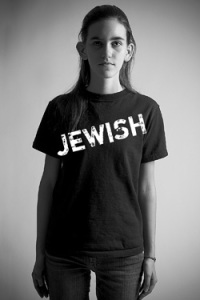 That’s why I think we cannot compare the current “bilateral ekklesia” with the future Messianic Kingdom. Right now, it’s important for the Jews in Messianic Judaism to focus on Judaism and the Jewish disciples of Messiah. Countless generations of Christians have made it clear that Jews cannot remain Jewish and convert to Christianity, while countless generations of Jews have made it clear that if you are devoted to Yeshua as Messiah, even if you live a fully religious Jewish lifestyle, you are considered an apostate.
That’s why I think we cannot compare the current “bilateral ekklesia” with the future Messianic Kingdom. Right now, it’s important for the Jews in Messianic Judaism to focus on Judaism and the Jewish disciples of Messiah. Countless generations of Christians have made it clear that Jews cannot remain Jewish and convert to Christianity, while countless generations of Jews have made it clear that if you are devoted to Yeshua as Messiah, even if you live a fully religious Jewish lifestyle, you are considered an apostate.
So the only way for Jews in Messiah to survive and live a Jewish life is to contain themselves in a “Jewish bubble,” so to speak. If they associate exclusively with say, Orthodox Jews in order to maintain Jewish lifestyle, they may find their faith in Yeshua in danger of waning. If they associate mostly or exclusively with even Messianic Gentiles, let alone more traditional Christians, they may discover themselves diluting their lived Jewish experience and even becoming “Jewish-lite.”
I get that.
I also get that, in the Messianic Kingdom, the nations will have a place. We Gentiles, just as the Jews, will receive the full pouring out of the Spirit so that we too, from the very least to the very greatest, will have an apprehension of Hashem greater than even John the Immerser.
We too will have the resurrection and a place forever in the world to come. Our sacrifices will also be accepted in the Holy Temple in Jerusalem. We will be able to travel to Jerusalem, particularly during the time of Sukkot, and see the face of our King, bring honor and glory to his name, and standing on the streets of Jerusalem, the City of David, and in the Temple courts, we will worship Hashem, God of Israel, thanking Him for redeeming not only the Jewish people, but all of the Gentiles who have kept faith and trust in Him during the hard times.
But that’s then and this is now.
Some Messianic communities would not desire my presence because, as a Gentile, I would inhibit Jewish worship. Interestingly enough, I believe in other Messianic communities, I’d be “too Gentile” because I do not regularly cover my head, wear a tallit katan, keep strictly Glatt kosher (I only keep Leviticus 11 “kosher lite”), use a siddur in prayer, pray at the set times of prayer, pray in Hebrew, cease work on Shabbat, and many other “Jewish” things.
I know there are Jews in Messiah who have “issues” with Gentiles who outwardly behave “Jewish” (don tzitzit, lay tefillin, wear a kippah in public during the week), but I’ve sometimes wondered if there are other Jews (and some “Messianic Gentiles”) who have “issues” with those of us who, as a matter of conviction, have set aside even praying with a siddur?
It’s an interesting question.
The 17th of Tammuz started at sunset on July 4th this year and it begins a three-week period of increasingly intense mourning for the Jewish people (yes, it was a fast day and no, I didn’t fast) leading up to Tisha B’Av.
This is a Jewish time of mourning, so what does it have to do with Gentiles?
Well, one of the greatest losses to the Jewish people was the destruction of the Temple, razed by the Roman army in 70 CE. Consider two things: The Temple was destroyed by Gentiles, and the sacrifices of Gentiles, even in the days of Yeshua, were accepted. We also know they will be accepted again in Messianic Days.
So I think we have a legitimate reason to mourn as well. We also have a very good reason to spend these three weeks repenting. Repenting of what you ask? Two general areas: The first is for our sins. Oh, don’t be coy. You know you sin. So do I.
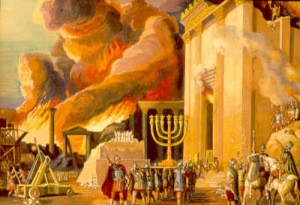 The second is to repent of all the crimes the Gentiles have committed against Jews and Judaism across the ages, including the destruction of both Solomon’s and Herod’s Temples.
The second is to repent of all the crimes the Gentiles have committed against Jews and Judaism across the ages, including the destruction of both Solomon’s and Herod’s Temples.
We non-Jewish believers aren’t used to repenting for sins we ourselves didn’t commit. We aren’t usually held accountable for the sins of our ancestors. And yet, in the future, we know that the rest of the nations of the world, including the good ol’ U.S. of A., will go to war against Israel, nearly destroy her, and at the last second, God Himself will fight for the Jewish nation, and defeat the rest of us.
We know one of the consequences will be that every year at Sukkot, each nation will be responsible for sending representatives to Jerusalem to pay homage to King Messiah, and any nation that fails to do so, will receive no rain.
Even we non-Jewish believers and disciples of the Master will be citizens of the former enemy nations of Israel. Yes, we were underground fighters, holding the line, maintaining loyalty to our true King, but as citizens of America, Canada, or where ever, we also are (and will be) representatives of our individual countries. How many of you Americans out there celebrated the Fourth of July by having a picnic or barbecue, setting off fireworks, displaying an American flag at the front of your home, or something similar?
We have a lot to repent for, past, present, and future. Where do we fit in? Maybe nowhere yet. We’re underground, remember? Actually, Jewish disciples of Messiah are underground, too. They can’t always advertise to all of their Jewish relatives and friends that they acknowledge Yeshua (Jesus) as the Messiah, for fear of rejection or some other adverse reaction.
At least we Gentiles can say we’re Christian without offending too many people (although that’s becoming kind of a problem in certain areas of social media lately).
We aren’t there yet. This isn’t the fully emerged and flourishing Messianic Kingdom. The Ekklesia of Messiah will no doubt one day be healed, but that day isn’t today. The rift still exists. We pretend it shouldn’t because a sizable number of Jews living as Jews now recognize our Christ as their Messiah. We want to be one big happy family.
We’re not. That much is more than obvious. We have problems. The “family” is dysfunctional.
I think I’m going to pay more attention to the three weeks this year, not because I think I should be emulating Jewish people, and not as a reflection of an arrived Messianic Era, but because of all the screw ups that have happened between Jews and Christians over the years, including the original screw up when Gentiles walked out of the ancient Messianic community.
Mourn the loss of a “healed” ekklesia, for it still lies rent and bleeding on the ground. Mourn that our ancient ancestors destroyed the very Temple that 70 bulls were sacrificed every Sukkot for the sake of the nations…us. Repent. Pray that Moshiach arrives quickly so there will be healing. Pray that you survive the horrors that are to come, the birth pangs of Messiah, when every hand will turn against Israel, and you’ll have to stop being underground and stand up for the Jewish nation against your co-workers, your neighbors, members of your own family, and against (probably) most of the Christian Church, which should know better.
Whatever conflict and alienation exists between Gentiles and Jews in Messiah will eventually be healed and we will be reconciled again. When and how that will happen and what it will look like when it does, I have no idea.
I only know it will happen.
And in the meantime, we’ll have problems, plenty of them.
For we Gentiles, our only assurance isn’t in Jewish community, it’s in the God of Creation and the Son of Man who has promised to return in clouds of glory.
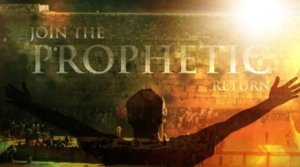
Pray that you remain strong in the faith until the end. I know that’s what I’ll pray for…the endurance and courage to stay the course, to not wander off to the left or to the right…to keep steady, no matter what’s happening around me or to me.
We can only celebrate the victory of the King if we keep fighting his fight.
Only then, I believe, will we finally be healed, and all men and women will live in peace with their brothers and sisters, Jew and Gentile alike.

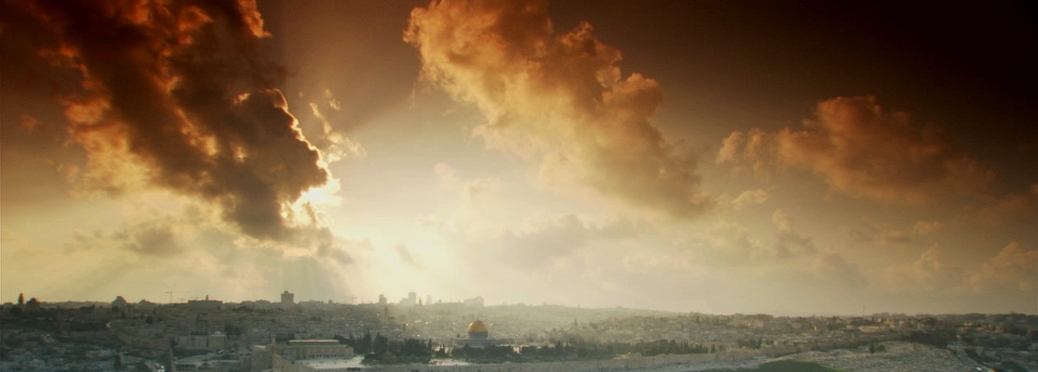
James said:
Some Messianic communities would not desire my presence because, as a Gentile, I would inhibit Jewish worship.
I honestly don’t think this is true. You are so aware and respectful of Jewish space that I don’t think anyone would have an issue with you worshipping with them. In addition to this, your wife and children are Jewish, so at the very least you’d be seen as trying to support your family. You are already careful not to misappropriate Jewish customs (though I’d like to point out that wearing a kippah in synagogue is customary for all men, not just Jews), and you’ll never be that guy who walks into a synagogue on Shabbat and tries to sell his homemade tzitzit with the blue thread that attaches to the belt loops. 😉 I know you have more home-based reasons for not attending a MJ shul, but I don’t think it’s true that you’d be seen as an intruder, even in the most solidly Jewish MJ congregation. In my limited experience, your approach and attitude are not the ones that MJ finds problematic.
I was interested in reading about your experiences at Beth Immanuel. It surprises me that some of the non-Jewish folks there would wear a tallit or do some of the other specifically Jewish things you mentioned. Any idea of the reasoning?
Kari, if I were to take Mark Kinzer at his word in his book Postmissionary Messianic Judaism: Redefining Christian Engagement with the Jewish People, I have to believe that at least some Messianic Jewish communities in existence would prefer to have a majority of Jews present if not an exclusive Jewish membership, possibly with the exception of the Gentile spouses of Jewish members.
I realize that exclusively Jewish Messianic communities are probably pretty rare, at least in the U.S., but if that’s the goal, then on the level of a functional ideal, it’s what would happen in a “perfect” world.
I am playing to the extremes here to emphasize that if Messianic Jews really do believe in and require exclusive Jewish space, this is the consequence. How it will all play out in the Messianic Era, I don’t know. I assume because the Jews will live in Israel and the Gentiles will be in their own nations, that this issue will be a “non-event” most of the time.
All I’m really trying to say here is that there is a significant difference between the relationship between Jews and Gentiles who are associated with Messianic community today, and what things will be like when Messiah is sitting on his throne in Jerusalem.
All right, James — If you want broader engagement than just a dialog between you and Kari, let’s broaden the terms of the discussion just a bit to step outside the confines of “either-or” options. Kinzer’s sub-title was about re-defining Christian *engagement* with the Jewish people, not about disengaging one from the other (which would be virtually impossible, anyway). At issue is the question of what problems have existed that need to be resolved, and what questions still exist or are only partially resolved. One issue is a need for recognition of Rav Yeshua as he really was (and will be), which is to say recognition of his identity as an Israeli rabbi as well as a future king of Israel and beyond. Another issue is a need for recognition of and respect for the continuing validity of the Jewish people as such, and the Jewish culture and history which enable deeper understanding of all aspects of the first need for recognition of Rav Yeshua’s characteristics.
It is this second need that presses for Jewish “sanctuary” that enables Jews to be themselves and to recover from various aspects of a bi-millennial exile. However, that must also include recognition of categories that include Jews as well as non-Jews engaged with Jews in Jewish space. We have non-Jews who have Jewish ancestry, like the Anusim, who wish to recover a Jewish family heritage. We have also other non-Jews who cannot explain why it seems that HaShem has called them toward Judaism and the Jewish people. They cannot identify any ancestry with any certainty, though it may exist, and they feel impelled to convert in order to ratify what seems to be their calling. Others have chosen to marry a Jew, for whatever reasons, and thus find themselves with responsibilities that represent another form of “calling”. These categories are not necessarily mutually exclusive — indeed, one should not be surprised at how often they may overlap. But these categories all tend toward a goal to integrate stragglers and strays into a comprehensive and particular restored Jewish people.
A challenge yet to be resolved is the still-widespread view that either denigrates or idolizes the house of Israel. In either case, the view tends to be based in a universalism that will not tolerate Jewish particularism; such that either no one may be Jewish or else everyone must be enabled to be so. This is the challenge that establishes the second need discussed above. Another challenge derives from this one, which you have been discussing in your recent posts: regarding how should non-Jews conduct themselves if they must accept and honor the Jewish particularism that excludes them. It seems to me that this question strikes closest to your current topic, which considers the Bilateral Ecclesia (BE) and the Kingdom of Heaven (KoH). But again, it is not a question of “either-or”, as if there were a choice between BE and KoH, or as if one may be pitted against the other in some sort of adversarial conflict; but rather the challenge is to embrace both and to recognize the particularism that will exist in the millennial kingdom and which must exist even at present in the mindset that enters one into the KoH. I suspect that this is also the discussion that reflects the deliberations leading to the events of Acts 15; but have you seen any good recommendations that address the “How shall we then live?” question for modern gentile messianists on the MG website?
PL said:
I don’t disagree with anything you said, PL. As I see it, in the present, we continue to struggle with the development of the Bilateral Ekklesia and how to integrate those two general bodies given the issues you bring up in your comment. I see BE, however imperfectly, working toward the coming of the KoH. I believe under the rule of King Messiah and because all members of the ekklesia will possess the fullness of the Spirit, BE will be specifically defined in a way that has never happened before and we will all take our place, great and small, in the Kingdom.
@Peter: Thanks for the heads up. I brought up Rabbi Rudolph and Tikvat Israel as an example. I could have as easily mentioned Rabbi Joshua Brumbach (whose blog I cited above) and Ahavat Zion Messianic Synagogue.
Well, now, James — Since BE is actually merely a concept or model, it is already developed, and the ecclesia itself is always under development because its members are never quite fully developed — except, perhaps, when the KoH is fully realized on earth (which may take a while, yet [:)]). Meanwhile, the behavior of the partisans dedicated to bringing to fruition the KoH ought to be inspired by the quality of their participation in its mindset in the present.
James said:
All I’m really trying to say here is that there is a significant difference between the relationship between Jews and Gentiles who are associated with Messianic community today, and what things will be like when Messiah is sitting on his throne in Jerusalem.
I agree wholeheartedly! There isn’t a corner in the faith market that has it all together, for sure. I think you’re right that we all have pieces to the puzzle that don’t fit together yet, and that Messiah will be the link that makes them come together.
Thanks for another engaging post!
I hope it’s more engaging than a conversation between just the two of us. I think this goes to the heart of the division of the Gentile and Jewish portions of the Messianic ekklesia, and why we may never find peace with each other this side of Moshiach’s return.
James,
Rudolph is hanging up his rabbinical hat to become a professor:
http://tikvatisrael.podbean.com/e/trusting-g-d-through-transition-david-wein-1436035561/
The elders at Tikvat haven’t decided on the new rabbi yet.
Shalom,
Peter
Important correction: At Beth Immanuel most men by far who are not Jewish do NOT wear a tallit. Men who are not Jewish at Beth Immanuel only wear kippot in the synagogue out of respect for the sanctuary.
As for tallit katan, even I have no clue whatsoever since almost nobody wears tzitzit exposed.
For Kari and James. As far as I know, Gentiles at Beth Immanuel Generally do not wear talits. The exceptions to this are guests that are visiting who are not familiar with our synagogue. Which is why one may noticed more talits during a conference than one would on a typical shabbos. as far as kipot, it is our custom to have a man either wear a kipa or a hat, regardless of ethnicity. Outside of the synagogue, those Gentiles who feel compelled to cover their head usually wear a hat. I hope that helps clear things up.
James, The part about having a kingdom focus really resonated with me. Too often I think we can be distracted from the kingdom. Yeshua rabbeinu was a kingdomist(focused on the kingdom) rather than religionolist, Zionist etc. although some of these other elements like religion may be important, We shouldn’t lose focus of his message that the kingdom of heaven should spread throughout all of the earth to every people, Tom and tribe.
Aaron and Troy, thanks for providing those important corrections to my narrative. I appreciate the input.
@Troy: Yeshua was (and is) Kingdom focused, but he also was speaking to an almost exclusively Jewish audience, so issues of Judaism and the (from the first century CE perspective) future schism between Gentile believers and Rabbinic Judaism was apparently not on his radar.
I do look forward to a time when he is here and we are each taught what we need to know in order to fulfill our role in the Kingdom.
@James, that’s true.
James,
You wrote: “I know there are some notable Messianic Jews who believe the Messianic Judaism we have today is a fully realized microcosm of what the Messianic Kingdom will be when Messiah returns.”
This claim surprised me. I try to follow closely what notable Messianic Jews say and write, but I couldn’t think of any examples supporting this claim. Could you perhaps give some?
Hi Yahnatan. I’ll email you.
Actually, James, I would be interested also to learn who you were referencing with that claim, because of a certain fuzziness in its expression. I wonder what someone might have thought they meant by using the term “microcosm”; and what it might mean if even that microcosm were truly to be “fully realized”. And then there is a question about their intent in using the word “is”. Did they really mean that some theoretical definition has been already formulated and that it “is” therefore fully developed and that thus it offers the potential to guide present actions and attitudes to reflect on a local level (i.e., microcosmically) the KoH and therefore the messianic kingdom? Or might there have been some loss of precision in the effort to represent whatever these notable MJs have said they believe?
I emailed you.
Actually, the email bounced. 😦